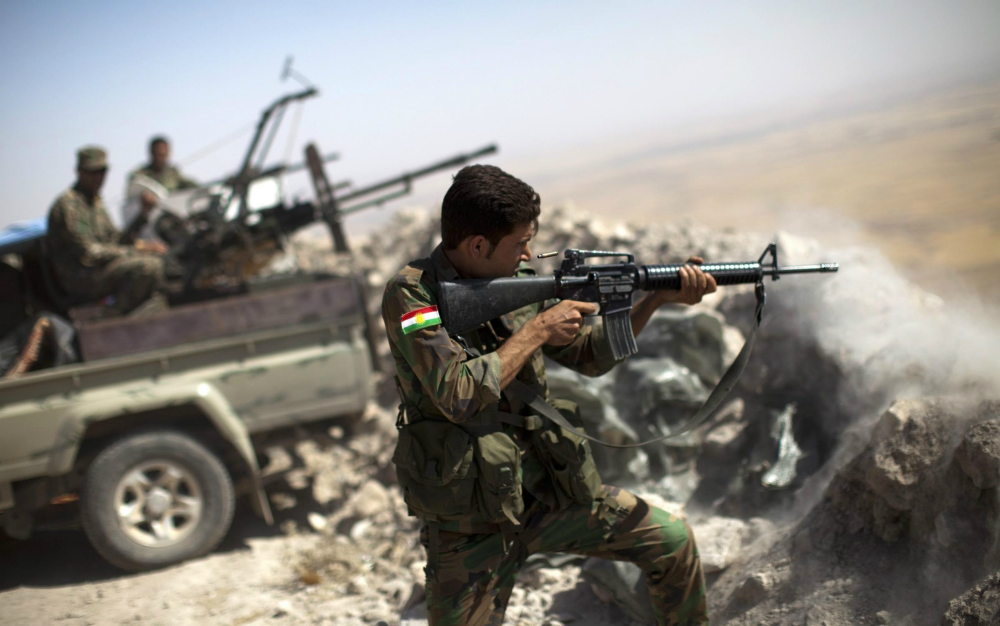
However, in the aftermath of a drone strike by Iranian-backed militias that claimed the lives of three American soldiers, the dynamics have shifted. Both Washington and Tehran seem reluctant to engage in direct military confrontation.
The recent drone strike targeted a Jordanian outpost near its borders with Iraq and Syria, marking the first attack by Iran-backed proxies causing U.S. fatalities since October. (Related: Iran denies involvement in deadly attack on U.S. military base in Jordan.)
This event has led to calls in Congress for the Biden administration to respond militarily against Tehran. Yet, for the Biden administration, striking Iran's paramilitary forces carries the risk of retaliation against American troops or bases in the Middle East.
This could escalate the conflict, drawing in other regional players and complicating the situation.
On the Iranian side, the calculus is equally intricate. Restraining the proxy forces it supports across Iraq, Yemen, Syria, and Lebanon may undermine its claim to lead the "axis of resistance" against the U.S. and Israel.
However, confronting the more powerful U.S. directly could result in a significant military setback for Iran.
Both sides are carefully calibrating the use of force to influence the other's behavior without crossing critical red lines.
President Joe Biden has held Iran accountable for the drone attack, blaming Iranian-backed militias. Plans for multi-day strikes in Iraq and Syria, targeting Iranian personnel and facilities, have been approved.
The response is expected to be tiered, combining military actions with other measures to avoid further escalation.
The objective is to pressure Iran and its proxies to reduce attacks across the region while pursuing cease-fire talks between Hamas and Israel.
Iran has signaled restraint, denying responsibility for the attack and cautioning against reprisals on its territory or personnel.
The Biden administration's advance notice of its intentions may provide Iran with the opportunity to reposition personnel and equipment, potentially limiting the impact of U.S. strikes. However, it also serves as a diplomatic effort to manage tensions behind the scenes and prevent further escalation.
Retired U.S. Army General Joseph Votel emphasized the need for an unambiguous message to Iran, holding them responsible for militia actions.
Target selection, he said, should convey value to Iran without provoking a broader conflict.
While both sides may seek to avoid escalation, the complex regional dynamics and the influence of various proxy groups make it uncertain whether a wider conflict can be averted this time.
Preventing escalation a top U.S. priority
The ongoing conflict between Israel and Hamas has the potential to escalate further, involving actors from the wider region, such as the Lebanese group Hezbollah, Iran and the United States. Preventing this escalation is a top priority for Washington.
While Hamas is not directly controlled by Iran, it receives support from Tehran to exert pressure on Israel and the United States. This conflict is intertwined with the broader shadow war between Israel and Iran, along with the involvement of nonstate and quasi-state actors acting as Iranian proxies.
Washington aims to deter escalation and has deployed military forces, including two aircraft carrier strike groups, as a warning. However, the risk of intervention by Iran and its allies remains, potentially turning the conflict into a more extensive regional crisis.
The challenge for the U.S. is to prevent a Middle East meltdown, which would divert American resources needed elsewhere.
Despite the deterrent measures, the potential for escalation exists, with concerns that the longer a war in Gaza continues, the greater the temptation for Hezbollah to intervene.
Watch this video discussing how Iran may already have nuclear weapons.
This video is from the Paul Davis UnCancelled channel on Brighteon.com.
More related stories:
Iran claims missile strikes targeting Iraq and Syria destroyed Israeli spy base.
Iran just proved it can hit Israel with "Kheibar Shekan" ballistic missiles.
Iranian Foreign Minister warns U.S. "will not be spared" if the Israel-Hamas war escalates.
Sources include:
Please contact us for more information.

















